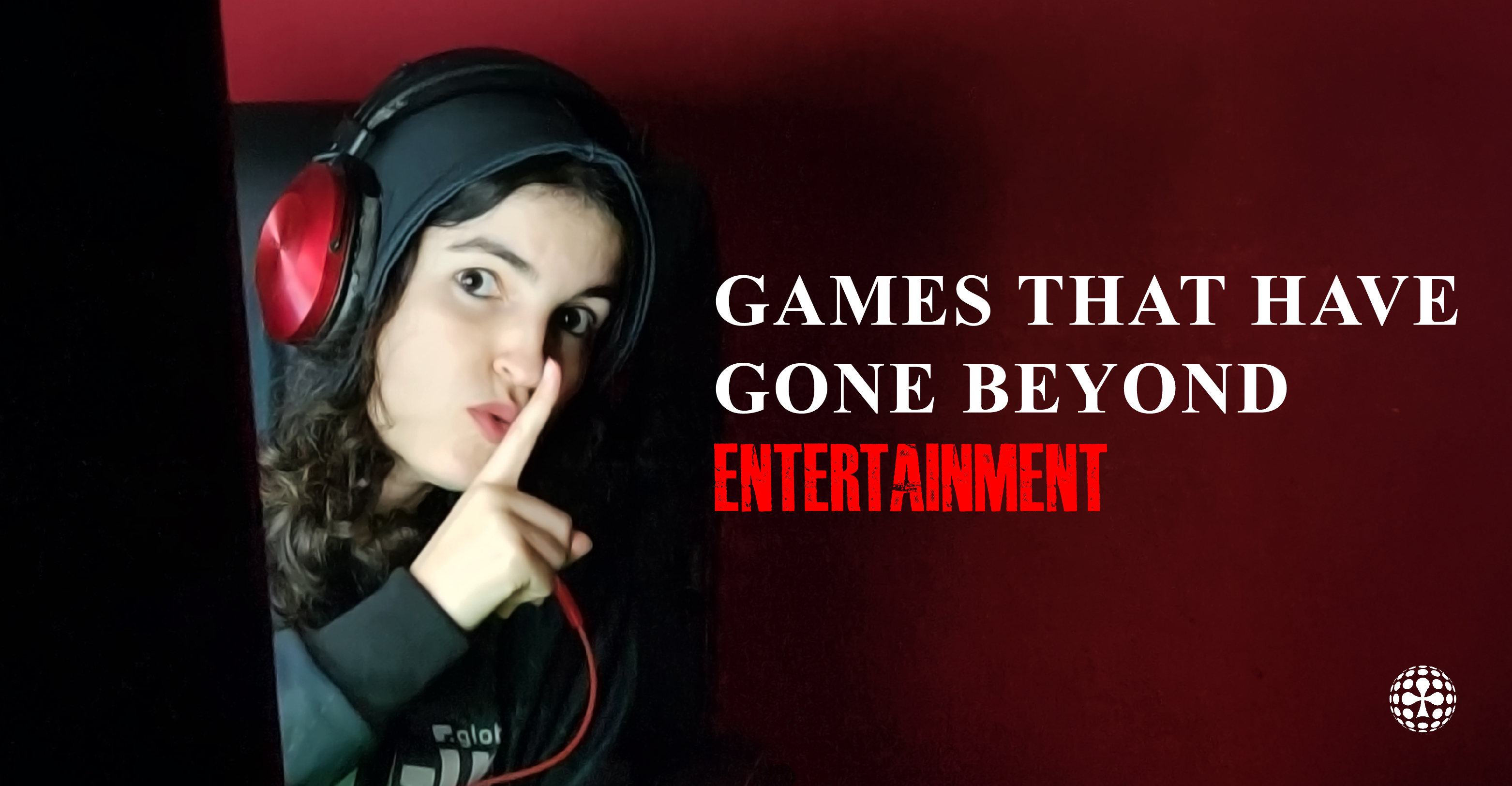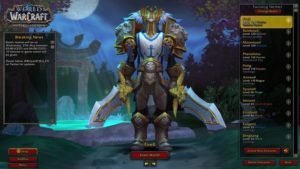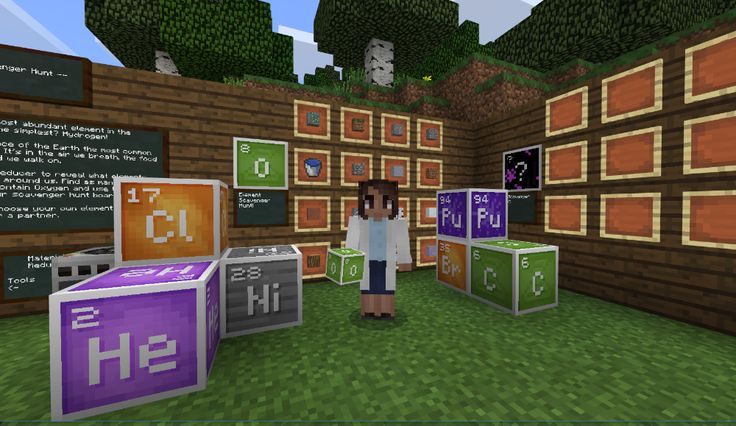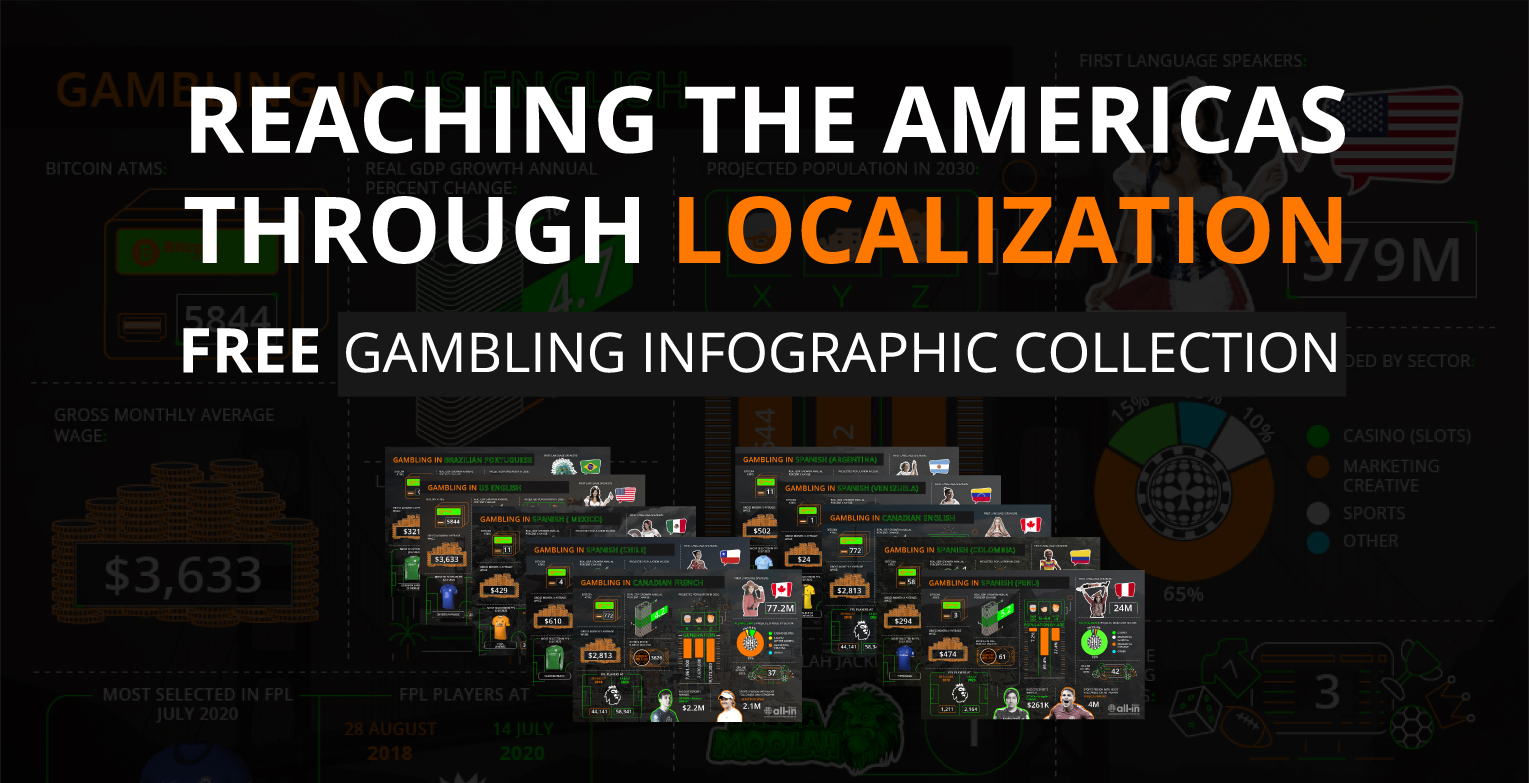
GAMES THAT CHANGED OUR LIVES
The silence that sharpens our minds and the imaginary creatures that draw us out of our comfort zones. Explore the surprising ways games reshape our reality.
Some games have gone beyond entertaining us: they’ve made us fitter and more sociable, better communicators, taught us to plan and budget, develop spatial reasoning abilities, and even appreciate the value of silence. All while having plenty of fun. These are the games that have changed our lives.
A Quiet Place: The Road Ahead

Released in October 2024, the game takes you on a parallel journey to the characters you may already have encountered in The Quiet Place movie franchise.
Fun fact about making the first A Quiet Place: to make the monsters’ creeping clicking sound, filmmakers electrocuted a grape with a taser. Yes, we’re also not sure what the poor grape did to them.
A Quiet Place: The Road Ahead was developed by Stormind Games and published by Saber Interactive for Microsoft Windows, PlayStation 5 and Xbox Servies X/S.
In order to create the same tense atmosphere as the movie while playing the game, you need your character to stay stealthy and silent to survive.
In fact, the game takes silence to the next level with its innovative use of a microphone feature. Make a sound in real life, and the monsters in the game will hear you. Yes, sound is the enemy. This clever mechanic adds a layer of immersion, as every creak, whisper, or cough could make a difference.
You might think you are just playing a game, but by needing to remain silent, your body and mind will be rewarded with several benefits.
Quiet the Monkey
Based on Chinese folklore, the concept of the “monkey mind” refers to a person’s mind when it is restless, with chaotic thoughts and emotions, jumping around like a frantic monkey.
Silence helps calm the monkey and offers several benefits to your state of mind.
Staying mute lowers stress hormone levels, such as cortisol and adrenaline, helping you feel calm and promoting relaxation.
By not vocalising your thoughts, you can better process and understand your emotions, meaning you’ll make better, more rational decisions.
Being quiet is particularly useful when playing a game like A Quiet Place: The Road Ahead. It boosts mental clarity and reduces anxiety, although we can’t promise your anxiety won’t peak when you see one of the terrifying monsters around the corner.
Expand your mind
Besides enabling better emotional control and balance, being still can actually physically change the structure of your grey matter.
Staying temporarily mute stimulates brain growth and cell development in the hippocampus, the area of your brain that processes your short-term memory and creates long-term memories. It also plays a role in spatial memory, navigation, and emotional processing.
By holding your tongue while playing A Quiet Place: The Road Ahead, you’ll enhance your concentration and focus, which will help you succeed in the game, as well as help you with your studies and work.
Without the need to speak your thoughts out loud, your mind will have the chance to wander, helping you come up with creative ideas and solutions.
Let’s get physical
Without the need for constant chatter, your body will also benefit from several physiological benefits.
Stay silent, and you’ll start to reduce your blood pressure and boost your immune system function.
The calmness will promote hormone regulation and even prevent arterial plaque formation. In fact, quietness can support your overall cardiovascular health. So, while A Quiet Place: The Road Ahead might get your heart pumping, it will also make it pump better overall.
At the end of the day, what this game proves is that silence really is golden.
Pokémon Go

One of the biggest-ever gaming fads was born on July 6, 2016. Birthed into the world by Niatic in collaboration with the Pokémon Company, Pokémon Go was an instant hit.
At the peak of its popularity, the game boasted close to 232 million active players worldwide. To give that number some context, it’s the equivalent of every person living in Nigeria (the sixth most populous country in the world) playing the game. Even today, the augmented reality game still has an impressive player base of about 80 million active monthly users, globally.
A breath of fresh air
So going out and getting some much-needed fresh air and sunshine in the name of a game of football or padel, a long walk, or a fishing trip doesn’t do it for you?
If that’s the case, how about braving the great outdoors, rain or shine, while looking for imaginary little creatures to collect? All exercise is good exercise, whatever your motivation for doing it.
When playing the Pokémon Go game, your aim is to catch virtual Pokémon via augmented reality, but in the real world, so you’re going to have to put in some real steps, in order to catch them.
If you want to collect them all, you’ll have to get into GO mode and get your steps in. After its introduction in the market, the game motivated gamers in a way that had never been seen before, at least not on the same scale.
For players to do well in the game, they need to explore their surroundings. Chasing down the most elusive Pokémon requires searching parks and engaging in outdoor activities.
It didn’t just end there; other game studios quickly jumped on the bandwagon, using gamification to promote health. Games like Hops – Journey of Tree Spirit, Nerd Fitness Journey and Fitness RPG were all created to get people moving, while having fun.
Ho-Oh to make friends
Besides the physical health benefits, there’s also the opportunity to make connections IRL with the benefits also extending to social interaction and improved mental health. Imagine running to the centre of town to capture Moltres and noticing someone doing the same; it’s not a bad icebreaker.
During special challenges known as “Raids,” a boss temporarily takes over a gym. The only way to beat them is if half a dozen or so players work together, making social interaction an essential part of the game.
Finding your way
If you’ve ever found yourself in a London Back cab, your journey would’ve benefited from “The Knowledge”. It’s an intensive study of the map of London that all cabbies in the city must complete. It takes three to four years of study to complete and ensures that no cabbie will ever check a map or, God forbid, use GPS.
The Knowledge just goes to show how intricate and complex an urban environment can be. Using GPS and familiarising yourself with your hometown, while chasing after Pokémon has massively improved players’ navigational skills, giving them a better sense of their environments and providing them with an important life skill.
Studies have also shown that learning the layout of the world around you literally changes the structure of your brain, leading to more grey matter in the hippocampus and improving your memory.
Gotta Catch ‘Em All… customer edition
Since Pokémon GO takes you to roads previously untravelled, sought-after Pokémon can often be found close to historical sites and in museums. Players who might not have previously visited these spots would do so to capture their prize and might even learn something new in the process.
At the height of the Pokémon craze, small local businesses worldwide reported increased foot traffic and sales, due to nearby Pokéstops and gyms.
World of Warcraft

Celebrating 20 years of Azeroth and still going strong, World of Warcraft (WoW), the massively multiplayer online role-playing game (MMORPG), was released on November 23, 2004.
At its peak in 2010, World of Warcraft boasted over 12 million active subscribers worldwide. And while those numbers may have dwindled, an estimated four to five million players still can’t get enough of guilds, raids and dungeons.
Brains over brawn
In our ever-evolving world, muscles and brute strength don’t pose quite the benefit they used to.
Parents have long worried that video games are rotting their children’s minds, but believe it or not, studies have shown that games like WoW can teach important problem-solving and strategic skills.
Players embark on complex quests that require creative solutions. You’ll often need to decipher tricky clues or use items in unique ways.
Before heading out on raids, you must plan and coordinate with other players, analyse opponents’ strengths and weaknesses, and adapt strategies in real time.
WoW introduced a generation of kids to resource management and helped them develop business acumen. In the game, players must handle in-game currency and craft materials effectively to maximise their performance.
Social Wizardy
Gone are the days when video games were played in your parents’ basements, on a worn-out couch, with no connection to the outside world.
The release of Microsoft’s Xbox 360 and Sony’s PlayStation 3 started to bring gaming online and more opportunities to interact with other players.
From its inception, WoW has encouraged collaboration, communication, and the formation of friendships and communities.
The bittersweet story of Mats Steen illustrates the importance of this. The Netflix documentary “The Remarkable Life of Ibelin” tells his story. When he passed away at the age of 25 from Duchenne Muscular Dystrophy, his parents had no idea of this rich life he lived within WoW. He was able to use the game to experience things he couldn’t in his physical life due to the limitations placed on him by his illness.
The film reveals all the close relationships he built in the game, highlighting how they valued him for his strength and humour. These friendships weren’t shallow interactions but as complex and deep as any we build IRL.
Let’s Play a whole new form of entertainment.
While somewhat baffling for older generations (this X-Gener included), WoW brought with it a brand-new form of entertainment… Let’s Play (LP).
LP usually documents a player’s journey through the game with colourful commentary. It isn’t just a straightforward walkthrough but rather a subjective tour of a player’s experience of the game.
Well-known content creators Swifty, Mute, and NWBZPWNR have all found fame playing WoW on Let’s Play channels.
Minecraft

Speaking of people who go by a single moniker, you can thank the Swedish game developer Notch for coming up with this world-building (and changing) game.
Minecraft, the ultimate sandbox video game, was later developed by Mojang Studios and first released on May 17, 2009.
The game quickly gained popularity and has gone on to break several records. As of 2023, Minecraft has sold over 238 million copies. In April 2020, the game boasted 1.4 million players exploring the virtual world simultaneously.
Classroom Integration
From its start, Minecraft has been praised for its potential benefits of developing skills for kids.
Presenting children with open-ended challenges requires them to analyse problems and come up with creative solutions.
Embracing this element, Minecraft released an Education Edition of the game in 2016. Since then, it has been widely adopted in schools across the globe and used to teach various subjects, including Maths, Physics, History, and Ecology.
The skills that kids develop while playing Minecraft are diverse and ones that have their value in the real world, such as:
- Spatial reasoning: The game plays out in a 3D environment. Its building mechanics encourage creativity and careful thought when constructing unique structures.
- Teamwork and communication: Students can collaborate on projects and share ideas, encouraging communication and teaching them to work together and resolve conflicts to achieve common goals.
- Coding: The educational version of the game has another built-in tool, MakeCode. Students can use this tool to learn the basics of programming.
Pickaxing the gaming landscape
Minecraft hasn’t just influenced its young players; it has affected the gaming industry as a whole.
It was the first game to make use of the Early Access model, which allowed players to get involved in the game right from the start of the development process. Since then, several other games have used the same process, greatly changing the way indie games are created and funded.
The game’s foundation (the sandbox model) allows players freedom to create without restrictions, an element that greatly influenced the development of recent open-world games, such as Mario Maker and Fortnite.
Like WoW, Minecraft has played an important role in popularising Let’s Play, significantly adding to the growth of gaming content creation.
Addressing global issues

As such a massive game, it’s not really surprising that Minecraft has affected both its players and the industry; but it actually goes a step further. It goes above and beyond to try to improve the world around it. Minecraft gets involved in a lot of social responsibility projects, but there are two where it really stands out.
Enter the world of the Uncensored Library and you’ll find a massive neo-classical building, probably exactly what you might have in mind when thinking of a beautiful library.
It was created in collaboration with Reporters Without Borders to allow access to censored information in countries with restricted press freedom. Once inside the library, visitors will find several wings, each dedicated to a country where access to specific types of information is limited.
Egypt, Mexico, Russia, Saudia Arabia and Vietnam all have a wing; players from these countries can read banned articles, bypassing traditional internet censorship.
Using the Minecraft platform, UN-Habitat’s Block by Block project involves communities in urban planning.
This project uses the platform to get young people involved in redesigning their local spaces. Participants benefit not only from a sense of community but also learn skills involved in urban planning and design.
Designs are taken to local governments, teaching participants a level of civics they might not have been previously involved in.
Block by Block has been used in over 30 countries, bringing together 25,000 people to design almost 100 public spaces.
FIFA (EA Sports FC 24)

Developed and released by EA Sports back in 1993 on the Sega Mega Drive, it was the first football-themed video game to have an official license from the world governing body, FIFA.
It has since sold over 350 million copies worldwide, making it the best-selling sports video game franchise ever, as per the Guinness Book of Records. In late 2023, EA Sports and FIFA announced the end of their long-term licensing agreement and when the former released the 2024 version, it was called EA Sports FC 24, instead. But a change in name isn’t going to change much because all the elements that have made it a worldwide obsession for the past three decades, are still there. And to some, it will always just be ‘FIFA’.
Keeping your eye on the ball
The slightly worryingly increase in cases of attention deficit hyperactivity disorder (ADHD) over the past few years have been put down to several reasons, including excessive use of social media and the need for instant gratification, rather than people being patient and waiting for things. In a nutshell: more people are finding it increasingly hard to concentrate properly.
Whereas the casual FIFA player is playing for pride and bragging rights rather than prize money, that’s not to say they’re taking it any less seriously than the pros. Take your eye off the ball and before you know it, that ball will be in the back of your team’s net.
So, fully concentrating on your ongoing game of FIFA, whether it’s a one-off match lasting five minutes or as part of a marathon three-hour session, can only be a good thing.
It will prepare you for something (with all due respect to FIFA) a bit more important in your life down the line, where your powers of concentration will have been honed by beautifully-timed tackles, inch-perfect passes and thunderous shots into the top corner, on FIFA.
Empty pizza boxes, finger-waving and shouting matches aren’t a bad thing
You’ve arrived late to the FIFA party and before you’ve even reached the front door you can hear the shouting, sense the tension and smell the competitive juices in the air. You walk into the front room where empty pizza boxes have been discarded in all corners and the sheer levels of concentration (or is it animosity?) mean you’re lucky to get a nod of the head in your direction over the control pad, let alone an actual handshake or spoken greeting. Unpleasant, unnecessary and uncalled for, right? Maybe not.
Healthy competition among friends contributes to them staying in touch. “You beat me last time, I’ll beat you next time.”
In an age of ‘virtual’ friendships over social media and where even a lot of dating involves smartphones, friends meeting up IN PERSON is (worryingly) considered a throwback to yesteryear. If it needs a big Real Madrid v Barcelona grudge match, some flying control pads and unsavoury language for it to happen, so be it.
Yes, we know. There’s no need for players to meet up in the flesh anymore for a good old session of FIFA as they can play it online against an opponent on the other side of the world. But many still do. And as for those who do decide to keep it ‘strictly online’, they’re often members of wider game-playing communities. Which is better than nothing.
Go Pro
No, not a suggestion for FIFA, sorry…EA Sports FC…fans to turn to deadly rival Pro Evolution Soccer for their fix of football video game-playing.
But rather, becoming a professional FIFA (sorry, can’t help myself) player is these days as genuine, competitive and potentially lucrative a career as being an influencer, an Only Fans content provider or streaming yourself playing slots for hours on end. Like it or not, these are real jobs these days.
If you don’t have a traditional skill or talent like selling, writing or managing people, why not make a living out of something that you’re far better off at than most and that people are willing to pay you good money to do? If you’re really good, thousands will even watch real-time streams of our matches, chant your name and celebrate your goals with you.
Premier League Fantasy Football

What did you do last summer? If you’re one of the 10,845,872 players from all around the world who registered a Fantasy Football (FF) team on the Premier League’s official website by mid-August, you probably spent a significant amount of time picking your Fantasy Football side ahead of the start of the 2024/25 season. Lots of questions surrounding who to have in and who to leave out, resulting in lots of sleepless nights. Trust me: my Apple Watch sleep numbers don’t lie.
It was first developed by hard-copy UK newspapers in the early 90s before its move to the online world ahead of the 2002-3 season. This instantly made it accessible to Premier League fans all over the world.
Fantasy Football has changed the way many of us see the game, and the way we enjoy it, bringing some important benefits to the table, too.
Premier League knowledge like never before
Go back 25 years or so and the average PL fan would know the team they supported inside out, plus the key players at other teams who featured on Match of the Day or in one of the three or four Sky Sports-televised games a week.
These days the levels of knowledge of all PL players is something else among Fantasy Football fans. The most diehard ones who wish to leave no stone unturned as regards FF will think nothing of knowing the full list of players making up Ipswich’s 25-man squad or which Bournemouth back-up defender is out injured for the next fortnight.
The popularity of the game also caused a shift from football fans just focusing on team’s results to the performances of individual players, not solely in terms of the most obvious aspects such as goals scored and clean sheets kept but also stats-based factors. Such as goalkeeper saves, shots on target or successful tackles made.
Of course, not all this knowledge will be of great importance in everyday life. It’s unlikely to come up in most job interviews unless you’re specifically looking to work in the sports, publishing or betting industry, while a discussion of a player’s average expected goals per game may not be the best opening line on a first date.
But it can be a good ice-breaker at a party if you know your audience, will help you win a few sports rounds in the local pub quiz and impress your mates when the situation calls for it.
Planning, budgeting, organising, prioritising…
If you think you’re going to be allowed to go over-budget every week like an overdrawn student, miss transfer deadlines only for the game to forgive you or get away with lax planning, then you’re not going to make much of a Fantasy Football manager.
All of the four skills making up the header above are essential if you’re going to do well in the game, and to paraphrase the old saying: a failure to prepare will only result in you preparing to fail.
Just like you’re unlikely to be able to have Mo Salah AND Erling Haaland in your side, you might also be unable to afford a new airfryer AND a trip to the swanky new Argentinean steakhouse before payday, so it’s decision time.
Being organised enough to know when that transfer deadline hour is coming up and not missing it may help you to be similarly organised when it comes to other things. Such as paying that utility bill every month before the deadline expires, which may result in a hefty fine if you don’t.
Making under pressure decisions with a cool head like when it comes to choosing who will wear the captain’s armband may prepare you for some tough calls at work, or even in your personal life.
Meaning skills and experience learned from the Fantasy Football game could be equally priceless in the game of life.
Building your team, team building and wine for prizes
This section is specifically about Premier League Fantasy Football, but it’s ok to shift the goalposts (no pun intended) for just a second to include some interesting research conducted by Yahoo Sports on 1,000 adult American Football Fantasy players in the USA. Different sports yes, but the concepts and dynamics will be very similar in any Fantasy game.
The research found that 44% of players compete with colleagues at work. Of those 44%, 66% believe that it helps them integrate and connect with new team members.
This all makes sense. A shy, introverted new team member may find it easier to discuss their Fantasy team in the early stages of their time in a job than other aspects of their life, as a way of getting to meet new colleagues. On a Monday morning, it could also be less awkward to discuss the lucky and unlucky breaks your Fantasy team encountered over the weekend than what you were up to on Saturday night, even for colleagues who know each other better and trust each other more.
I think most of us will agree this is a more organic and rewarding form of team building than building rafts, human knots and taking part in scavenger hunts. Deliberately shooting your office rival at point-blank range in an unprotected area of the body during a team-building game of paintball probably isn’t what the organiser had in mind, either.
In any case, a friendly rivalry and a common interest can only be good for office morale, with both staff and the company benefiting from it.
The research also found that 83% of players said it helps them stay connected to friends or family, who they might not speak with as frequently otherwise.
This bit I can personally relate to.
I have friends I’ve somewhat lost touch with, that I at least speak to a couple of times a year to wish them good luck at the start of the season and recap on how we both did at the end of the campaign. Through gritted teeth, there may even be a congratulatory message in there somewhere.
My cousin- twenty years younger than myself and living in another country – and I wager a bottle of wine (there’s a cap on how much it can cost!) at the start of every season and come May, discuss which wine the winner fancies, while also catching up on what the other has been doing since we last spoke. Without Fantasy Football, these annual catch-ups may not carry on happening.
As with all things, there’s a danger of going too far with Fantasy Football and taking things too seriously. It’s like that joke:
Man- My girlfriend and I just broke up.
Friend- Oh dear, what happened?
Man- She said I was too obsessed with Fantasy Football.
Friend- I see. Well, that’s a shame.
Man- I know. We’d been together for seven seasons.
Why localization matters
By now you’re aware of how some of the most popular games out there have done more than just entertained us.
They’ve also given us valuable life skills, rewarding experiences and paved the way for us to be part of supportive communities. Additionally, they’ve helped us make new friends and keep up those friendships through a shared passion for those games.
But whether you’re in the business of making and promoting such games or are a keen player of them, never underestimate the role played by localization. Studies show that the localization of game apps can increase the number of downloads by as much as 125%.
Let’s start by reminding ourselves what that actually means. Game localization is the complex process of adapting a product to a specific culture. Once localized, your product will look and feel as if it was made in the target country. Here’s why that’s so important:
- Global reach: Minecraft, the game that has sold over 240 million copies worldwide, is available in over 90 different languages. Had its makers limited it to six or seven, the smart money is on the fact that millions of people wouldn’t have been able to understand the rules and intricacies of its gameplay and not bothered buying it. 90 languages, by the way, are the number we offer making up our translation and content writing services here at All-in Global.
- Improved player experience and retention: Players who enjoy all aspects of the game will keep coming back to play it, feel a greater connection to it, and may therefore refer it to friends and sing its praises on social media and the like. In other words, they’ll market the game for you. One way of ensuring all this is the case is by localizing games for that greater sense of engagement.
- Avoiding cultural misunderstandings and respecting local traditions: Games aren’t a case of ‘one size fits all’ because its players from all around the world come from very diverse places and cultural backgrounds. Happy players appreciate game-makers going the extra mile in terms of localizing the game’s rules and prompts and avoiding cultural misunderstandings by respecting local traditions. In other words, games that ‘speak their language’. Unhappy players will feel the exact opposite: offended, insulted, neglected. Which of the two would you hope the players were?
- Compliance with local laws: The last thing you want when focusing on launching a game in a particular market is to encounter legal roadblocks or PR disasters due to mistranslations, misunderstandings or any other form of ‘misses’. Proper localization of games should ensure these are all things you won’t have to worry about.
Whatever your localization needs are, related to games or otherwise, get in touch with our team at [email protected].

